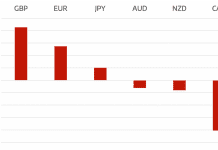In December, 2013 the highly publicized LIBOR rate scandal resulted in the EU fining a group of global financial institutions more than $2 billion to settle charges related to LIBOR rate manipulation. At about the same time U.S. and UK regulators were investigating reports of another benchmark interest rate being rigged by banks and the same interdealer broker involved with setting the LIBOR rate. The International Swaps and Derivatives Association (ISDA) announced this past January that it was stripping the international swaps dealer of its involvement with setting the ISDAFIX rate– a widely used benchmark for derivatives. The dealer had been subject to investigations by both the U.S.s Commodity Futures Trading Commission (CFTC) and the UKs Financial Conduct Authority (FCA). Last week 13 banks and the interbank dealer were sued in a U.S. class action case for allegedly manipulating ISDAFIX.
The Importance of ISDAFIX
The ISDAs ISDAFIX rate is used as a benchmark for contracts traded in the $710 trillion derivatives market. The interbank dealer involved in previously setting the rate collected data for the U.S. dollar-denominated portion of the derivatives market. The U.S. lawsuit alleges that the defendants colluded to fix the ISDAFIX rate at artificial levels so as to avoid paying the plaintiffs what was due to them on interest rate derivative trades. The rate is also used by investors to price commercial real estate mortgages and structured debt securities.
Alaska Fund Lead Plaintiff
The case was filed in U.S. District Court in Manhattan by the Alaska Electrical Pension Fund which accused 13 banks of beaching U.S. anti-trust and commodities laws by conspiring to rig the ISDAFIX rate between 2009 and 2012. The fund represents all similarly situated investors who traded in interest rate derivative transactions tied to ISDAFIX. The actions allegedly caused billions of dollars in investor losses, but whatever damages might be assessed may be tripled under U.S. anti-trust laws.
Banging The Close
The complaint alleges that the defendants executed rapid trades just before the rate was set in a tactic known as “banging the close”. This caused the interbank dealer to delay processing trades until the banks had moved the rate to where they wanted it, and also resulted in the interbank dealer posting a rate which did not truly reflect market activity. According to the complaint, the defendants would submit the same or virtually the same U.S. dollar ISDAFIX rate quotes almost every daywithin five decimal pointsand it alleges that the odds of such near- identical rates occurring every day were “astronomical.” The banks communicated with each other via electronic chat rooms. The practice complained of allegedly abated only after the CFTC and FCA began their probes.
David draws on 20+ years’ experience in both legal practice and in business services delivery since his own call to the Bar in 1989. With several years in the startup environment, including as a co-founder in the legal tech space specifically, he brings a unique and timely perspective on the role of data, automation and artificial intelligence in the modern and efficient delivery of services for legal consumers. Having been both a corporate buyer of legal services and a services provider, he identifies the greater efficiency and value that can be achieved in legal operations for corporate buyers especially.
An attorney, David worked for law firms Pinsent Masons and Linklaters in London before moving to New York to join Credit Suisse. As CAO, he helped negotiate & execute the relocation of Credit Suisse into its new NYC global HQ. Subsequently, David directed major global outsourcing, shared sourcing, HR operations & process efficiency initiatives including the digitization of records, the global roll-out of PeopleSoft HRMS & Y2K. David has worked extensively in the UK, US, Philippines, India and China markets in the areas of data management, human resources and business process outsourcing.
Most recently, David has been successfully investing in and serving as an advisory board member of several legal services start-ups including a cloud-based solution for legal process automation and e-filing; and a technology solution for large-scale capture of court and other public data used for litigation analysis, among others.
David graduated from the University of Manchester with Honors in Law and Bar School (College of Legal Education) in London, and has been a member of Middle Temple since 1989. He is the founder and former Chairman of The Global Sourcing Council.
Member: Bar of England & Wales, ABA, NYCBA, ACC, DRI




































